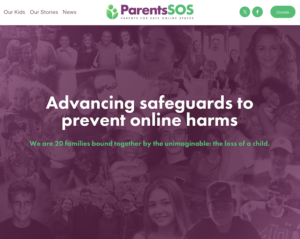There can be no keener revelation of society’s soul than how it treats its children.
Nelson Mandela
Technology, data and pharmaceutical corporations surreptitiously use their immense profits to fool the general public into doubting what is becoming so glaringly obvious…that their products are causing irreversible harm to children. We’ve all drank the corporate Kool Aid to some degree, and accepted technology corporation’s mantra that online content and digital devices are all ‘educational’ and safe for children, that data corporations don’t collect and sell children’s data for profit, and that psychotropic pharmaceutical drugs (sedatives, antianxiety, antidepressants, stimulants and antipsychotics) are safe and will not cause harm to children, now or in the long term. Research demonstrating the extent of harms to children from technology, data and pharmaceutical corporations while prolific, is regularly repressed, misinterpreted and/or under-reported largely due to pervasive corporate infiltration into every level of government and institution. From schools to hospitals to professional academies and associations, every organization that provides services to children is increasingly exposed to corporate industry bias and unethical pressure to use their products. Reports demonstrating possible harm to children from corporate products are quickly and effectively buried by the industry using a variety of creative and increasingly innovative strategies. Naomi Oreskes and Erik M. Conway report in their book Merchants of Doubt that corporations routinely publish their own fabricated research (which is flagrant conflict of interest), pay scientists to oppose established research, attack expert credibility, and train scientists to manipulate truth by misinterpreting and misrepresenting facts thus effectively misleading media and general public. This article written by a pediatric occupational therapist and child development expert illustrates how profit focused Big Tech, Big Data and Big Pharm corporations are grossly misrepresenting their products to schools and health institutions as harmless, when really these products are causing extensive and irreputable harm to the children who use them.
As harms to human health and well being from corporations escalate, the systems which support and service children begin to fall apart. The infiltration of sedentary, overstimulating and isolating technology in schools by Big Tech corporations has resulted in escalating levels of mental illness, poor physical fitness, problematic behaviours, unmanageable aggression, poor academic performance and declining literacy. Yet, the use of screens in schools continues to escalate with these problems left unaddressed by both the education and health governments. In July 2023, a policy proposal for a school cell phone ban was sent by myself in collaboration with US Fairplay for Kids organization to all Canadian Ministers of Education and Health. Only four Education Ministers responded, 2 with form letters. No responses were received from any Canadian Health Ministers. A 2023 article in the Lancet titled Defining and conceptualising the commercial determinants of health reports that this “commercialization of health” must stop. This article goes on to detail that just 4 industry sectors (tobacco, processed food, fossil fuel and alcohol) account for at least a third of global deaths. Should we now add technology, data and pharmaceutical corporations to this list? This Lancet article states “Corporate inflicted health harms are escalating, leaving health-care systems increasingly unable to cope. Governments can and must act to improve, rather than continue to threaten, the wellbeing of future generations, development and economic growth”.
Emergence of Corpocracy
The practice of ‘democracy’ is rapidly being replaced by ‘corpocracy’ which is defined as an economic, political and judicial system controlled by business corporations or corporate interests. Money is power and politicians are heavily influenced by people with lots of money. Billionaires own large corporations including technology, data and pharmaceutical industries and these corporations are driven solely by profit. Profit has no conscience and these technology, data and pharmaceutical corporations do not care if their products harm children. This power imbalance between politicians and corporations contribute to the government’s policy inertia we are witnessing today in our utter failure to protect children from harm. In the article Mercenary Science: A Field Guide to Recognizing Scientific Disinformation, Dr. David Michael an epidemiologist and professor at GW School of Public Health who ran OSHO from 2009-2017, talks about the consistent problem of corporate industry infiltration into what looks like trusted institutions (both nonprofit and governmental). The important concern is that the public health is often harmed when industry interferes. Recommendations with industry bias may not be as clear as they need to be to keep people safe from harm. In the case of the technology industry including online products and digital devices, we should be especially concerned about protecting all children (age 0-18) from excess morbidity and mortality. The sedentary, overstimulation and isolation aspects of screen technologies is routinely not mentioned nor addressed by the technology industry despite pervasive research showing negative impact on all five child developmental domains: physical, social, emotional, mental and cognitive, and in some cases actually killing children.
Political Inertia
The old phrase “follow the money” is appropriate to help us understand exactly what is happening regarding failure of governments to act to protect children from corporate industry harm. The technology industry has buckets of money and has bought out whomever they can to foster putting that money in their bank account. Washington Post journalist Steven Pearlstein reported in an article on July 6, 2023 that a handful of bills meant to end the anticompetitive business practices of Apple, Amazon, Facebook and Google had failed. By early 2022, Pearlstein reported that all had been voted out of committees in both chambers with bipartisan majorities despite broad support from voters, knowledgeable experts, regulators and the White House. Yet not one was taken up by the full House and Senate. Pearlstein went on to state “The prime suspect in this legislative murder mystery is Big Tech itself. In terms of lobbying, advertising, public relations and stepped-up campaign contributions, the four companies spent an estimated $250 million to kill the various bills. In financial terms, that represented about 1/10 of 1 percent of their combined annual profits. On a political scale, it was an overwhelming show of force”. In Canada, the Canadian government is currently trying to push through Bill C-18’s Online News Act which would require Google and Meta to pay media compensation to the tune of $172 and $62 million respectively for sharing news on their platforms. Meta retaliated by blocking all Canadian news content on Facebook with Google threatening to do same.
Corporate Manipulation
We like to think that scientific research is pristine and protected from conflict of interest and corruption. Unfortunately, that’s not the case. When industries such as Big Technology, Data and Pharma become so large, they infiltrate all levels of corporations and government, and consequently begin to fall outside of regulatory controls. These beyond wealthy corporations can easily manipulate and corrupt media outlets, universities, and long-standing, well-established institutions such as schools and health departments in the blink of an eye. Partnerships with private organizations with strong industry ties can lead to misinterpretation and misrepresentation of data. The internal conversations of these organizations may have sounded something like this “We get money from Gates Foundation, Google etc…so our industry corporate sponsors don’t want us to talk about how their product may harm children. We can talk about vaccines in school, clean water in schools, lead paint, physical activity, etc…(since there is no for profit company behind this) but we cannot talk about digital and online products in schools.”
Conflict of Interest
When a corporation or organization has a vested interest which puts into question their ability to be unbiased, there is conflict of interest. For example, let’s say an educational technology (edtech) corporation makes a product, say an app or a program which is touted as ‘educational’ and without adequately testing the product, proceeds with a fraudulent marketing campaign to schools, in some cases paying teachers to be ‘brand ambassadors’ for the product; this would be considered conflict of interest. Or when a health institution receives financial donations from technology or pharmaceutical corporations, this institution would have inherent bias in how it delivers its services, also constituting conflict of interest. Corporate industry, whether it’s Big Tech, Big Data or Big Pharma, doesn’t care about the health and well being of children. What is astounding is how the technology, data and pharmaceutical corporations have insidiously embedded themselves into the highest echelons of health, education and social governments and institutions to the point where all heads are turned away from any potential harms these products cause children, as well as cloaking the enormous corporate profits.
David Michael points out in Mercenary Science that declaration /disclosure of conflict of interest is not enough. Perceived or real conflict of interest needs to attract a higher level of scrutiny to any recommendations given. Another example where conflict of interest is rife is media. Increasingly we see ‘pro-tech’ articles written by reputable journalists who have chosen to interview ONLY ‘pro-tech’ people who fail to include recongized research showing technologies multiple harms on children. At what time did media decide that they only had to present one side of the story? Again, let’s look at who funds media…Big Tech. At this epic juncture in time, we need to pull down the curtains, and analyze what is happening on the backstage. We need to start making decisions based on ethical and non-conflict of interest research and do what’s right for children. Every media outlet as well as health and education professional needs to question who they’re involved with and what they’re doing and ask themselves “Is this decision to use this product in the best interests of children”.




